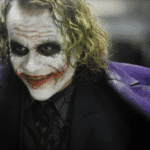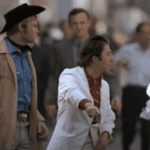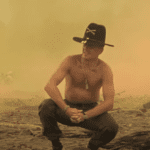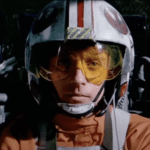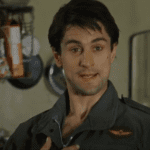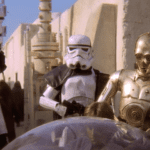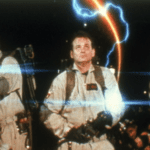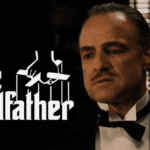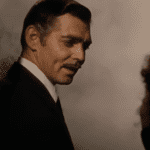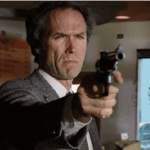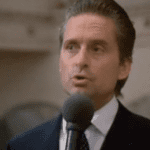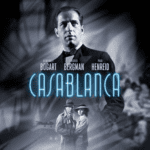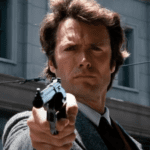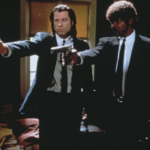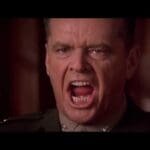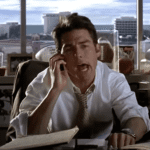The Dirty Harry film series, which began with the release of the first film in 1971, has become a significant cultural phenomenon in American cinema. Centered around the character of Harry Callahan, portrayed with remarkable intensity by Clint Eastwood, the series has captivated audiences with its exploration of complex themes such as justice, morality, and individualism. The film franchise delves into the life of a tough and uncompromising San Francisco police detective who often operates outside the bounds of the law to pursue justice.
Harry Callahan is best known for his no-nonsense approach to crime-fighting and his iconic line, “Do you feel lucky, punk?” This quote encapsulates not just his demeanor but also the moral ambiguity that characterizes the films. Over the years, the series has sparked debates about the portrayal of vigilantism and the ethical dilemmas faced by law enforcement. With Callahan’s disregard for bureaucratic constraints, he presents a figure that straddles the line between hero and antihero, challenging viewers to reflect on their own notions of right and wrong.
One of the most interesting components of the “do you feel lucky, punk?” quote is that it never actually happened and is misquoted! The actual quote (as you can see from the full transcript below) is “you’ve got to ask yourself one question: ‘Do I feel lucky?’ Well, do you, punk?” Without the context this quote doesn’t make sense so over time and for clarity it has morphed into “Do you feel lucky, punk?”
The influence of Dirty Harry extends beyond its immediate cinematic success; it has significantly shaped the action genre and influenced countless other films and television shows. The themes of justice depicted in the series resonate with audiences, as they expose the frustrations and limitations of the legal system. In the context of a society grappling with crime and disorder, Harry Callahan’s character embodies the struggle for personal and societal justice, making the series relevant even decades after its initial release.
This exploration of iconic quotes from the series will delve deeper into the powerful dialogue that defines Dirty Harry and shapes its lasting legacy in popular culture.
The Most Famous Quote: ‘Do You Feel Lucky, Punk?’
The quote “Do you feel lucky, punk?” is arguably one of the most recognized lines in film history, prominently featured in the 1971 classic, “Dirty Harry.” This iconic phrase is delivered by the film’s protagonist, Inspector Harry Callahan, portrayed masterfully by Clint Eastwood. The line occurs during a tense moment when Callahan confronts a would-be robber who is at the mercy of his .44 Magnum revolver, amplifying the stakes of the ensuing confrontation. In this context, the quote encapsulates not only Callahan’s unyielding confidence but also his sense of morality and justice.
Harry Callahan, often referred to as ‘Dirty Harry’, embodies the archetype of the rogue cop who bends the rules to achieve justice. The emotional weight of the quote lies in its challenge to the robber, thrusting the decision of life or death into his hands. This moment captures the essence of Callahan’s character—a man willing to face danger head-on, relying on his instincts and weaponry rather than adherence to procedural norms. The quote reflects a broader commentary on power dynamics and societal expectations around law enforcement, contributing to the film’s complexity.
Other Memorable Quotes from the Series
The Dirty Harry series is not only distinguished by its gritty storyline and captivating action but also by the memorable quotes that resonate with audiences. Each quote encapsulates the essence of the character while reflecting the overarching themes of law enforcement and moral ambiguity that characterize the films. One notable quote is, “A man’s got to know his limitations.” This line, spoken by Harry Callahan, emphasizes the importance of self-awareness and responsibility. It underscores a recurring theme in the series: the necessity of understanding one’s strengths and weaknesses in the face of daunting challenges.
The Evolution of Harry Callahan’s Character
The character of Harry Callahan, portrayed by Clint Eastwood, has become an iconic figure in the realm of cinema, especially within the crime thriller genre. Over the course of the Dirty Harry series, which began with the original film in 1971, Harry undergoes significant evolution, reflecting a complex interplay between personal turmoil and societal expectations. While initially presented as a tough, no-nonsense cop, his journey embodies a growing ambivalence regarding the morality of his actions and the justice system he represents.
In the earliest installments, Harry’s quotes often emerge from a place of raw assertiveness, asserting his commitment to maintaining law and order, sometimes at the expense of due process. Lines such as, “You’ve got to ask yourself one question: ‘Do I feel lucky?’” illustrate his readiness to take matters into his own hands. This attitude echoes the frustrations many feel toward a judicial system perceived as ineffective, mirroring a societal craving for assertive justice during the tumultuous social climate of the 1970s.
As the series progresses, the moral complexities of Harry’s character become increasingly pronounced. His reflections and dialogue evolve to address the results of his own ruthless approach to crime-fighting. In films like “The Enforcer” and “Sudden Impact,” Harry grapples with the implications of using brute force and begins to express disillusionment with conventional methods. His famous line, “A man’s got to know his limitations,” signals a turning point in his character, suggesting that he is becoming more introspective and aware of the consequences of his actions.
By the time we reach “The Dead Pool,” Harry Callahan embodies a blend of hardened pragmatism and moral introspection, underscoring a character with depth and nuanced understanding of justice. The evolution of Harry Callahan reflects not only personal growth but also engages with broader themes of justice and morality, effectively capturing the changing landscape of societal values over time.

Cultural Impact and Legacy of Dirty Harry Quotes
The Dirty Harry series, particularly through its memorable quotes, has significantly influenced American pop culture. Lines such as “Do I feel lucky? Well, do you, punk?” have transcended their cinematic origins, embedding themselves in the collective consciousness. These quotes not only encapsulate the gritty ethos of the films but have also been referenced and parodied in various forms of media, including television shows and other films. This phenomenon illustrates how dialogue from the Dirty Harry franchise resonates with audiences, often reflecting societal sentiments and attitudes towards law enforcement and justice.
Moreover, the quotes from the Dirty Harry movies have made their way into political discourse. Politicians and public figures have utilized these powerful lines to rally support or emphasize their stances on crime and law enforcement. For example, invoking Harry Callahan’s assertive style has become a rhetorical strategy in discussions regarding crime rates and public safety. This usage underscores the series’ relevance, bridging the gap between entertainment and serious societal debates.
Additionally, the cultural impact of Dirty Harry quotes extends to various genres of entertainment. Many modern action films and crime dramas draw inspiration from the blunt, hard-edged dialogue that characterized the original series. These lines have become archetypal, influencing character development and narrative structures in subsequent projects. In this sense, the legacy of Dirty Harry quotes is not merely limited to a nostalgic recall but is reflected in the continued evolution of cinematic dialogue.
As time progresses, the quotes related to Dirty Harry will likely remain pertinent, echoing themes of justice and morality that resonate with audiences across generations. Their enduring nature in popular culture signifies the powerful imprint that this series has left on society. The integration of these iconic quotes within broader cultural contexts reaffirms their status as significant markers of cinematic history.
Clint Eastwood’s portrayal of Harry Callahan in the Dirty Harry series has significantly shaped the narrative and thematic depth of the films. His unique acting style, characterized by a stoic demeanor and minimalistic dialogue, allows the essence of the character to resonate with audiences. Eastwood’s approach emphasizes the toughness and sheer determination of Callahan, qualities that are central to the film’s quote-laden dialogues. His ability to convey complex emotions through subtle expressions and body language enhances the potency of his quotes, making them memorable and impactful.
Eastwood’s delivery, often marked by a gravelly tone and meticulous pacing, contributes substantially to the gravity of Callahan’s infamous lines. For instance, the iconic “Do I feel lucky?” scene captures both tension and defiance, demonstrating how his performance elevates the memorable phrases woven throughout the narrative. This particular style has not only become emblematic of Eastwood’s career but has also established a benchmark for tough-guy characters in cinema. His portrayal instills a sense of authenticity, providing a firm foundation upon which the quotes stand. The audience is drawn not just to the words spoken, but to the conviction behind them, thanks to Eastwood’s compelling performance.
Moreover, Clint Eastwood’s chemistry with other characters in the series allows for a more dynamic interaction, reinforcing the significance of his statements. The juxtaposition of his hard-nosed attitude with the contrasting personalities of his co-stars creates a riveting dialogue that leaves a lasting impression. Each exchange contributes to a climate of intensity, effectively making the quotes integral to the unfolding drama. Thus, it can be argued that Eastwood’s talent in embodying Harry Callahan significantly enhances the overall impact of the film’s dialogue, ensuring that these iconic quotes remain embedded in popular culture.
Fan Reactions to the Quotes
The ‘Dirty Harry’ series, renowned for its gritty storytelling and memorable quotes, has evoked a wide range of reactions from fans across various platforms. Social media has become a fertile ground for discussions, where fans share their favorite quotes and personal anecdotes. One of the most iconic lines, “Do I feel lucky? Well, do you, punk?” has sparked countless memes and reinterpretations, enabling fans to connect through humor and admiration for the character’s bravado.
Many viewers express their affinity for the unyielding nature of Clint Eastwood’s character, Harry Callahan. On platforms like Twitter and Reddit, people have various interpretations of several lines. Some emphasize the moral ambiguity presented in the quotes, using them as springboards for deeper conversations about ethics and justice in contemporary society. Forums dedicated to film critique dissect these quotes, revealing layers of complexity that resonate with fans’ perceptions of right and wrong.
Additionally, individuals often recall personal experiences that align with the sentiment expressed in the quotes. For instance, a fan shared how the line about an “artistic license” resonated with them during a moment of personal confrontation, illustrating the broader applicability of Harry’s words to real-life situations. This sense of relatability has allowed the Dirty Harry quotes to transcend the screen, fostering a community where participants feel empowered by their shared experiences.
As the quotes from the ‘Dirty Harry’ series continue to echo through cinema and popular culture, they serve not only as entertainment but also as touchstones for fans, facilitating discussions and creating connections that endure. In tapping into the emotional and ethical dilemmas presented through these lines, a community has formed, celebrating shared interpretations and the profound impact of iconic cinema.
Conclusion: The Enduring Power of Dirty Harry’s Words
The legacy of the Dirty Harry series is not only tied to its gripping narratives and cinematic excellence but also significantly anchored in the powerful quotes delivered by Clint Eastwood’s iconic character. These memorable lines have transcended the films themselves, embedding themselves in popular culture and instigating discussions around themes of justice, morality, and the often complex nature of right and wrong. The phrases articulated by Harry Callahan reflect a certain skepticism towards authority, a sentiment that resonates with individuals who grapple with issues of law enforcement and societal norms.
In contemporary society, these quotes continue to strike a chord, serving as a mirror reflecting ongoing debates about ethics and justice. The infamy of lines such as “Do I feel lucky? Well, do you, punk?” emphasizes a confrontational approach to conflict resolution that some individuals admire, while others criticize as indicative of a brutish ethos. This duality in interpretation is what keeps these quotes alive in dialogues around vigilante justice and the moral obligations of law enforcement officers. Many people find themselves drawn to the edginess of Harry’s philosophy as they ponder the challenges of navigating complex moral landscapes.
Moreover, the Dirty Harry quotes encapsulate a certain gritty realism that speaks to the human experience. They remind audiences of the personal struggles that arise when confronted with injustices, whether systemic or personal. The resilience portrayed in Harry’s words continues to inspire individuals who question traditional perspectives on justice and morality. Ultimately, the legacy of Dirty Harry is encapsulated in how his statements compel audiences to engage with tough societal questions, ensuring that these iconic quotes retain their relevance long after the credits roll.
The Full Do You Feel Lucky Dirty Harry Quote
Following a shoot out with a gang of would be bank robbers, Callahan (Clint Eastwood) approaches an injured bank robber who he had previously wounded. The injured robber looks like he is trying to reach out for his shot gun as Dirty Harry approaches and pauses as Callahan aims his revolver at him.
Callahan: “I know what you’re thinking: “Did he fire six shots or only five?” Well, to tell you the truth, in all this excitement, I’ve kinda lost track myself. But being this is a .44 Magnum, the most powerful handgun in the world, and would blow your head clean off, you’ve got to ask yourself one question: ‘Do I feel lucky?’ Well, do you, punk?“
The Robber stops reaching for his shot gun and Callaghan picks it up and starts to walk way
Robber: “Hey, I gots to know”
Callaghan aims his magnum at him and pulls the trigger, the gun was empty and the gun clicks on an empty chamber. Callaghan laughs and walks away.
Robber: “Son of a bitch.”
More Movie Quotes
- Why So Serious? – The Dark Knight
 Introduction to The Dark Knight and The Joker Ever wondered why a movie quote haunts us even years after its release? The Dark Knight offers lines so impactful they’ve etched themselves into pop culture, with none more famous than the Joker’s taunting query, “Why so serious?” Introduction to this cinematic marvel is almost unnecessary, but… Read more: Why So Serious? – The Dark Knight
Introduction to The Dark Knight and The Joker Ever wondered why a movie quote haunts us even years after its release? The Dark Knight offers lines so impactful they’ve etched themselves into pop culture, with none more famous than the Joker’s taunting query, “Why so serious?” Introduction to this cinematic marvel is almost unnecessary, but… Read more: Why So Serious? – The Dark Knight - “I’m Walking Here, I’m Walking Here” – Midnight Cowboy
 Ever feel like the world might just run you over if you don’t stand your ground? Imagine navigating the chaotic streets of NYC in the ’60s. Sounds intense, right? Well, that’s exactly what happens in the iconic scene from Midnight Cowboy where Dustin Hoffman’s character boldly claims his turf with ‘I’m walking here!’ What’s even… Read more: “I’m Walking Here, I’m Walking Here” – Midnight Cowboy
Ever feel like the world might just run you over if you don’t stand your ground? Imagine navigating the chaotic streets of NYC in the ’60s. Sounds intense, right? Well, that’s exactly what happens in the iconic scene from Midnight Cowboy where Dustin Hoffman’s character boldly claims his turf with ‘I’m walking here!’ What’s even… Read more: “I’m Walking Here, I’m Walking Here” – Midnight Cowboy - “I Love the Smell of Napalm in the Morning” – Apocalypse Now
 Imagine waking up at dawn, surrounded by thick jungle, the air heavy with tension. Then, boom! The unmistakable scent of sweeping devastation—napalm. It’s chaotic, surreal, and strangely, some say it’s beautiful. Sounds wild, right? That’s war in Apocalypse Now, friends. Ready to dive into the psyche behind one of cinema’s most enduring lines? It’s more… Read more: “I Love the Smell of Napalm in the Morning” – Apocalypse Now
Imagine waking up at dawn, surrounded by thick jungle, the air heavy with tension. Then, boom! The unmistakable scent of sweeping devastation—napalm. It’s chaotic, surreal, and strangely, some say it’s beautiful. Sounds wild, right? That’s war in Apocalypse Now, friends. Ready to dive into the psyche behind one of cinema’s most enduring lines? It’s more… Read more: “I Love the Smell of Napalm in the Morning” – Apocalypse Now - May The Force Be With You – Star Wars
 “May the Force Be With You” – An Iconic Star Wars Quote One of the most recognizable phrases in cinema history, “May the Force be with you,” has become synonymous with the Star Wars franchise. This simple yet powerful line encapsulates the essence of hope, guidance, and the struggle between good and evil. Recognised by The American Film Institute… Read more: May The Force Be With You – Star Wars
“May the Force Be With You” – An Iconic Star Wars Quote One of the most recognizable phrases in cinema history, “May the Force be with you,” has become synonymous with the Star Wars franchise. This simple yet powerful line encapsulates the essence of hope, guidance, and the struggle between good and evil. Recognised by The American Film Institute… Read more: May The Force Be With You – Star Wars - You Talkin’ To Me? – Taxi Driver – Robert De Niro
 Think you know movie quotes? Hold on tight because “You talkin’ to me?” might just be the most enigmatic of them all. Dive into a world where one phrase encapsulates societal angst and alienation with gripping intensity. Travis Bickle, played by the legendary Robert De Niro, interrogates not just his surroundings but his very existence.… Read more: You Talkin’ To Me? – Taxi Driver – Robert De Niro
Think you know movie quotes? Hold on tight because “You talkin’ to me?” might just be the most enigmatic of them all. Dive into a world where one phrase encapsulates societal angst and alienation with gripping intensity. Travis Bickle, played by the legendary Robert De Niro, interrogates not just his surroundings but his very existence.… Read more: You Talkin’ To Me? – Taxi Driver – Robert De Niro - “These Are Not the Droids You Are Looking For” – A Star Wars Quote
 Few movie quotes have transcended time and become as iconic as Obi-Wan Kenobi’s famous line, “These are not the droids you are looking for.” This phrase, uttered in Star Wars: Episode IV – A New Hope (1977), has cemented itself in pop culture history. Beyond its significance in the movie, the line has evolved into a metaphor for persuasion,… Read more: “These Are Not the Droids You Are Looking For” – A Star Wars Quote
Few movie quotes have transcended time and become as iconic as Obi-Wan Kenobi’s famous line, “These are not the droids you are looking for.” This phrase, uttered in Star Wars: Episode IV – A New Hope (1977), has cemented itself in pop culture history. Beyond its significance in the movie, the line has evolved into a metaphor for persuasion,… Read more: “These Are Not the Droids You Are Looking For” – A Star Wars Quote - Don’t Cross The Streams – Ghostbusters
 In the pantheon of movie quotes that have wormed their way into our collective consciousness, few have the staying power of “Don’t Cross The Streams” from the 1984 supernatural comedy classic, Ghostbusters. This seemingly innocuous phrase, uttered with deadpan seriousness by Harold Ramis’s Dr. Egon Spengler, has become more than just a line from a… Read more: Don’t Cross The Streams – Ghostbusters
In the pantheon of movie quotes that have wormed their way into our collective consciousness, few have the staying power of “Don’t Cross The Streams” from the 1984 supernatural comedy classic, Ghostbusters. This seemingly innocuous phrase, uttered with deadpan seriousness by Harold Ramis’s Dr. Egon Spengler, has become more than just a line from a… Read more: Don’t Cross The Streams – Ghostbusters - “I”m Gonna Make Him An Offer He Can’t Refuse” – The Godfather
 “I’m Gonna Make Him an Offer He Can’t Refuse” – The Godfather’s Timeless Quote and Its Cultural Legacy Few movie quotes in cinematic history have achieved the legendary status of “I’m gonna make him an offer he can’t refuse.” Uttered by Marlon Brando as Don Vito Corleone in The Godfather (1972), this line is more than just a clever… Read more: “I”m Gonna Make Him An Offer He Can’t Refuse” – The Godfather
“I’m Gonna Make Him an Offer He Can’t Refuse” – The Godfather’s Timeless Quote and Its Cultural Legacy Few movie quotes in cinematic history have achieved the legendary status of “I’m gonna make him an offer he can’t refuse.” Uttered by Marlon Brando as Don Vito Corleone in The Godfather (1972), this line is more than just a clever… Read more: “I”m Gonna Make Him An Offer He Can’t Refuse” – The Godfather - Frankly My Dear I Don’t Give A Damn – Gone With The Wind
 “Frankly, My Dear, I Don’t Give a Damn”: An Enduring Movie Quote and Its Cultural Impact Few movie quotes in cinematic history have stood the test of time like Rhett Butler’s famous line, “Frankly, my dear, I don’t give a damn,” from the 1939 classic Gone With the Wind. Delivered with cool indifference by Clark Gable in his… Read more: Frankly My Dear I Don’t Give A Damn – Gone With The Wind
“Frankly, My Dear, I Don’t Give a Damn”: An Enduring Movie Quote and Its Cultural Impact Few movie quotes in cinematic history have stood the test of time like Rhett Butler’s famous line, “Frankly, my dear, I don’t give a damn,” from the 1939 classic Gone With the Wind. Delivered with cool indifference by Clark Gable in his… Read more: Frankly My Dear I Don’t Give A Damn – Gone With The Wind - Dirty Harry – Go Ahead Make My Day – Sudden Impact
 The ‘Dirty Harry’ franchise, a cornerstone of American cinema, has captivated audiences since its inception in the early 1970s. This series primarily revolves around the resolute and gritty San Francisco police inspector, Harry Callahan, masterfully portrayed by Clint Eastwood. Callahan’s character is emblematic of a tough, no-nonsense cop wielding a .44 Magnum, known for his… Read more: Dirty Harry – Go Ahead Make My Day – Sudden Impact
The ‘Dirty Harry’ franchise, a cornerstone of American cinema, has captivated audiences since its inception in the early 1970s. This series primarily revolves around the resolute and gritty San Francisco police inspector, Harry Callahan, masterfully portrayed by Clint Eastwood. Callahan’s character is emblematic of a tough, no-nonsense cop wielding a .44 Magnum, known for his… Read more: Dirty Harry – Go Ahead Make My Day – Sudden Impact - Greed Is Good – Wall Street Movie Quote
 Released in 1987, the film Wall Street, directed by Oliver Stone, stands as a significant narrative within the landscape of American cinema, reflecting the zeitgeist of the era. Set against the backdrop of the bustling financial district of New York City, the film delves into the moral quandaries faced by those entrenched in the world… Read more: Greed Is Good – Wall Street Movie Quote
Released in 1987, the film Wall Street, directed by Oliver Stone, stands as a significant narrative within the landscape of American cinema, reflecting the zeitgeist of the era. Set against the backdrop of the bustling financial district of New York City, the film delves into the moral quandaries faced by those entrenched in the world… Read more: Greed Is Good – Wall Street Movie Quote - Casablanca Famous Movie Quotes
 Released in 1942, “Casablanca” remains one of the most critically acclaimed films in cinematic history. Directed by Michael Curtiz, the film stars iconic actors such as Humphrey Bogart and Ingrid Bergman, whose performances have captivated audiences for decades. Set against the backdrop of World War II, “Casablanca” combines elements of romance, sacrifice, and patriotism, making… Read more: Casablanca Famous Movie Quotes
Released in 1942, “Casablanca” remains one of the most critically acclaimed films in cinematic history. Directed by Michael Curtiz, the film stars iconic actors such as Humphrey Bogart and Ingrid Bergman, whose performances have captivated audiences for decades. Set against the backdrop of World War II, “Casablanca” combines elements of romance, sacrifice, and patriotism, making… Read more: Casablanca Famous Movie Quotes - Dirty Harry – Do You Feel Lucky Punk?
 The Dirty Harry film series, which began with the release of the first film in 1971, has become a significant cultural phenomenon in American cinema. Centered around the character of Harry Callahan, portrayed with remarkable intensity by Clint Eastwood, the series has captivated audiences with its exploration of complex themes such as justice, morality, and… Read more: Dirty Harry – Do You Feel Lucky Punk?
The Dirty Harry film series, which began with the release of the first film in 1971, has become a significant cultural phenomenon in American cinema. Centered around the character of Harry Callahan, portrayed with remarkable intensity by Clint Eastwood, the series has captivated audiences with its exploration of complex themes such as justice, morality, and… Read more: Dirty Harry – Do You Feel Lucky Punk? - Ezekiel 25:17 Pulp Fiction – Jules (Samuel L Jackson)
 Introduction to Pulp Fiction and Its Iconic Moments Quentin Tarantino’s film Pulp Fiction, released in 1994, is a landmark in modern cinema, renowned for its bold storytelling and unique narrative structure. The film intertwines several seemingly unrelated storylines that converge in unexpected ways, creating an intricate tapestry of characters and events that captivates audiences. Each… Read more: Ezekiel 25:17 Pulp Fiction – Jules (Samuel L Jackson)
Introduction to Pulp Fiction and Its Iconic Moments Quentin Tarantino’s film Pulp Fiction, released in 1994, is a landmark in modern cinema, renowned for its bold storytelling and unique narrative structure. The film intertwines several seemingly unrelated storylines that converge in unexpected ways, creating an intricate tapestry of characters and events that captivates audiences. Each… Read more: Ezekiel 25:17 Pulp Fiction – Jules (Samuel L Jackson) - You Can’t Handle The Truth – A Few Good Men
 A Few Good Men, a courtroom drama film, was released in 1992 and directed by Rob Reiner. The film is adapted from a play of the same name by Aaron Sorkin, who also penned the screenplay. It features a distinguished cast including Tom Cruise, Demi Moore, and Jack Nicholson, whose performances were pivotal in bringing… Read more: You Can’t Handle The Truth – A Few Good Men
A Few Good Men, a courtroom drama film, was released in 1992 and directed by Rob Reiner. The film is adapted from a play of the same name by Aaron Sorkin, who also penned the screenplay. It features a distinguished cast including Tom Cruise, Demi Moore, and Jack Nicholson, whose performances were pivotal in bringing… Read more: You Can’t Handle The Truth – A Few Good Men - Show Me The Money – Jerry Maguire
 The Origin of ‘Show Me the Money’ The phrase “Show Me The Money” originates from the 1996 film “Jerry Maguire,” directed by Cameron Crowe. Within the context of the movie, Jerry Maguire, portrayed by Tom Cruise, is a sports agent facing a career crisis. After experiencing a moral awakening, he strives to promote a more… Read more: Show Me The Money – Jerry Maguire
The Origin of ‘Show Me the Money’ The phrase “Show Me The Money” originates from the 1996 film “Jerry Maguire,” directed by Cameron Crowe. Within the context of the movie, Jerry Maguire, portrayed by Tom Cruise, is a sports agent facing a career crisis. After experiencing a moral awakening, he strives to promote a more… Read more: Show Me The Money – Jerry Maguire


